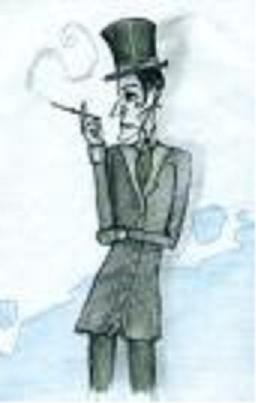Music To My Ears
 I'm having a fairly cultured week for once, it must be said. On Monday night I decided to dump my pre-planned evening in front of BBC4's Fantabulosa to join my friends in their trip to see the Shortwave Set play. I met Monobrow and Lady Muck at 7pm sharp in the backwater village of Shepherd's bush, which also conveniently doubles as the Australian National Homeland. They had both bought the album beforehand and, as newly converted disciples, immediately set to prosletysing for my conversion. I decided to reserve my judgement all the same. The support acts were varied: the first - called Cherry Ghost, I think - were a refreshingly uncool, Johnny-Cash-esque three-piece that I rather liked; the second, whose name failed to make an impression, contented themselves with pumping out some generic loud noise, which impressed nobody but themselves.
I'm having a fairly cultured week for once, it must be said. On Monday night I decided to dump my pre-planned evening in front of BBC4's Fantabulosa to join my friends in their trip to see the Shortwave Set play. I met Monobrow and Lady Muck at 7pm sharp in the backwater village of Shepherd's bush, which also conveniently doubles as the Australian National Homeland. They had both bought the album beforehand and, as newly converted disciples, immediately set to prosletysing for my conversion. I decided to reserve my judgement all the same. The support acts were varied: the first - called Cherry Ghost, I think - were a refreshingly uncool, Johnny-Cash-esque three-piece that I rather liked; the second, whose name failed to make an impression, contented themselves with pumping out some generic loud noise, which impressed nobody but themselves.As for The Shortwave Set themselves, they were superb. I don't have a big enough musical vocabulary to be able to categorise them or their possible influences with any confidence, but then again perhaps that's for the best as the real clincher for me was their originality and their willingness to experiment. The end product of such imagination is the kinda dreamy, hypnotic currents that underpin tracks such as Your Room, Is It Any Wonder or Roadside. I'll definately be listening out for more in the future!
On Tuesday, The Australian (who does not reside in the National Homeland, coincidentally) had been thoughtful enough to get us tickets for the Guardian debate on the limitations of free speech, entitled 'Free To Offend?'. This is something that I am suffisciently interested in to have written about it twice before on this blog. The debate was chaired by Gary Younge - one of my favourite journalists, who I was shocked to discover is actually the size of a small house - whilst the panel consisted of Ziauddin Sardar, Trevor Philips, DD Guttenplan, Salma Yaqoob, and Will Hutton. They all made some interesting points but the one in particular that stuck in my mind and challenges my relatively absolutist view of the freedom of speech was made by Ziauddin Sardar in relation to power imbalances in the distribution of freedon. He pointed out that if we expect to have the freedom to disregard the sacred values of another culture - for example, as in publishing cartoons that denigrate the image of the prophet Muhammed - then we must accept that another culture has the freedom to disregard the the sacred values of our own - for example, as in the protests against complete freedom of speech. Some poor Indian guy in the audience fell foul of the crowds when he tried to hold up secular India as a model of cultural integration where muslim, hindu, sikh and christian all walk hand-in-hand while the birds sing and the sun shines above. Sadly, he omitted to mention Vishwa Hindu Parishad, the clashes with Muslims over Ayodhya, the destruction of the Babri Masjid, petrol-bombed trains, the Hindu-Christian clashes in Gujarat, or, indeed, the disputes over Kashmir itself, to name but a few. Ooops. A portion of the audience errupted in fury and, if he had any point other than this, then it was lost in the furore. It seems, therefore, that we are free to speak, so long as what we speak is the truth.



0 Comments:
Post a Comment
<< Home